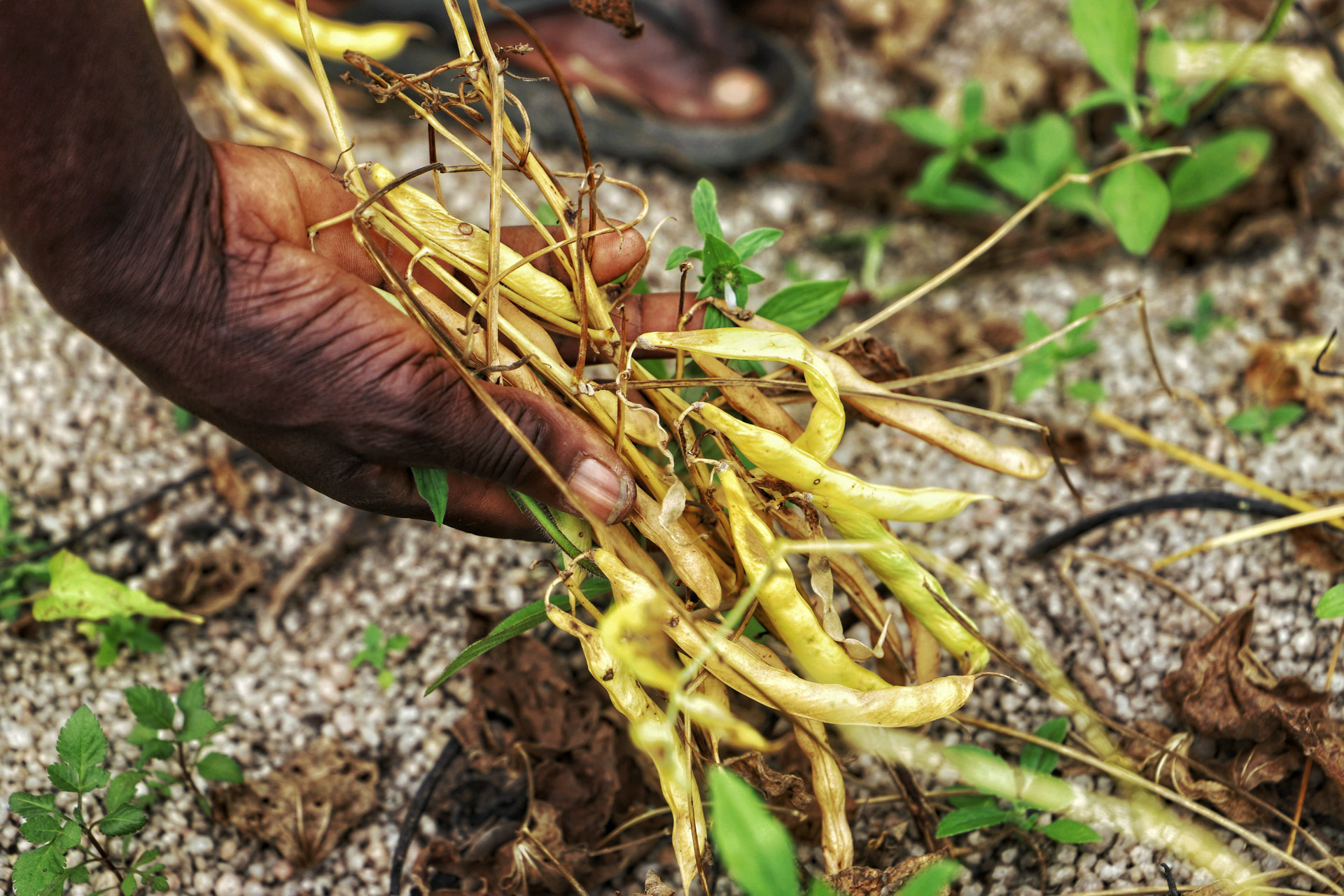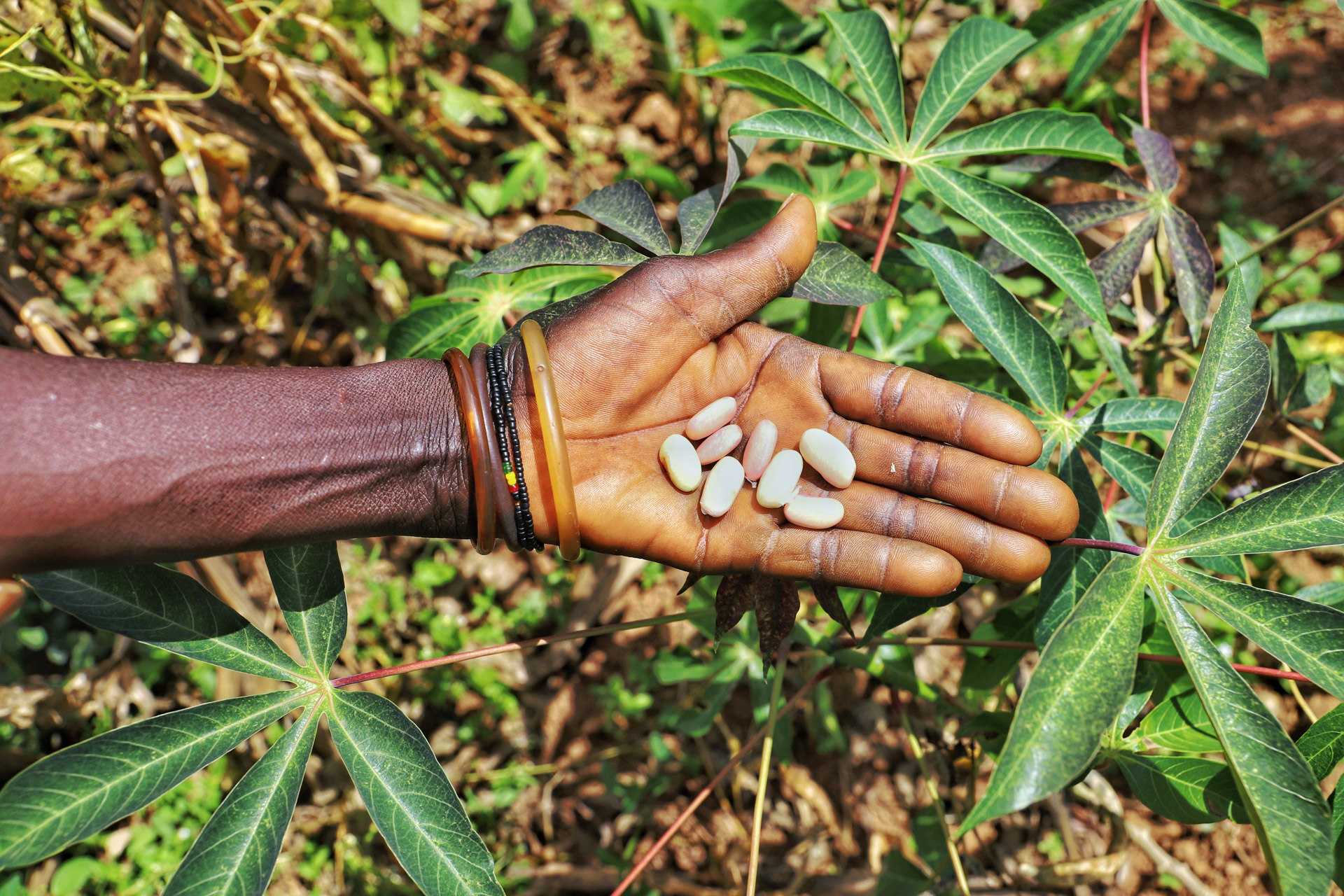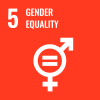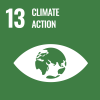Muyinga Province, Burundi – Born and raised in Murama hill in Burundi's Muyinga Province, 60-year-old Marcelline vividly recalls the accounts of her parents and grandparents on how fertile the land was. But over the years, she has witnessed drastic changes.
“The weather has changed. In the past, we didn't need fertilizers to harvest crops, and it was much easier to meet our needs,” she recounts.

Marcelline holds up the fruits of her labour which grew with fertilizer from her composting-latrine. Photo: IOM Burundi 2024/Hugo Brandam
Climate change has drastically been creeping into many parts of Burundi, with its impact on land fertility posing a threat to agriculture that has long been a cornerstone to both the livelihood and economy of the country. Land degradation specifically has been a critical challenge, directly impacting agricultural productivity.
Marcelline explains that changing rainfall patterns and more extreme weather, like droughts, heavy rains, and floods, make the situation worse. These climatic changes not only heighten soil erosion but also disrupt traditional farming cycles, leading to reduced agricultural yields, rising food insecurity and an exacerbation of existing socio-economic vulnerabilities, which could force individuals like Marcelline to leave their homes and communities.

Marcelline and her family. Photo: IOM Burundi 2024/Hugo Brandam
“In 2016, a drought hit us. The sun dried up all our crops, even cassava, which usually resists strong sun and heat. There was nothing to eat here nor on the surrounding hills. Little by little, everyone left because of hunger.”
At this time, Marcelline and her family were forced to leave their home to bordering Tanzania – a few kilometers away.
After four years away, Marcelline and her husband chose to come back home with their four grandchildren on the family land. But the challenges persisted.
“When my family and I returned, part of me felt good because we were welcomed by the neighbours who had either stayed or returned before us, and another part of me was anxious because the soil is clayey, and wasn't producing anything.”

Murama hills, Muyinga Province, Burundi. Photo: IOM Burundi 2024/Hugo Brandam
Upon returning, Marcelline heard about an innovative project led by the International Organization for Migration (IOM), involving the use of ecological latrines to produce natural fertilizers. She learned how to use these latrines, known as "Akasuga" – which facilitate the composting process. This process combats land degradation and enhances soil fertility.
“These fertilizers are used the same way manure was when we still had cows.”

Marcelline, standing in front of her Akasuga Latrine. Photo: IOM Burundi 2024/Hugo Brandam
Overall, IOM supplied 840 households with Akasuga latrines in four provinces with a high number of returnees. It made a change in Marcelline’s life.
“Since last year, I have been using fertilizer from the latrines and have been able to harvest. Before using fertilizers, I could harvest barely 20 kilograms of beans per season, but now I can harvest 100 kilograms."
“I harvested corn and beans and sold part of the harvest to buy the goats you see under the tree,” she says, pointing at the goats. “My grandchildren and I have enough to eat. I cannot imagine giving up using these fertilizers, especially as I can't afford to buy chemical fertilizers.”


Yellow beans from Marcelline’s lands, as a result of the use of latrine fertilizers. Photo: IOM Burundi 2024/Hugo Brandam
Restoring land is not only a way to combat climate change and biodiversity loss but also a solution to enhance human security and dignity by creating opportunities for livelihoods, sustainable development and peace.
Despite preventing land degradation through the construction of fertilizer-generating latrines, which improve soil fertility, Marcelline’s vulnerability to climate change remains, encapsulating the reality of Burundians. As one of the 20 countries most vulnerable to climate change despite contributing minimally to greenhouse gas emissions, Burundi is highly exposed to climatic and environmental shocks. Rural communities are frequently hit by landslides, strong winds, hail, droughts or heavy rainfalls, which can lead to river bursts and floods.
Last year in March, heavy rainfalls led to an instantaneous river burst that spilled onto her plot of land, tearing up the entire path leading to Tanzania and destroying a part of it. Today, the river continues its journey, swallowing a little more of her land every day.

Marcelline and her family observe the damage and losses caused by the river bursting over her rice field. Photo: IOM 2024/Hugo Brandam
Marcelline's story is one of many in Burundi, and in the East and the Horn of Africa, emphasizing that land degradation exacerbates migration by undermining livelihoods and threatening food and water security.
Written by Hugo Brandam, Disaster Risk Reduction Project Officer, IOM Burundi.


